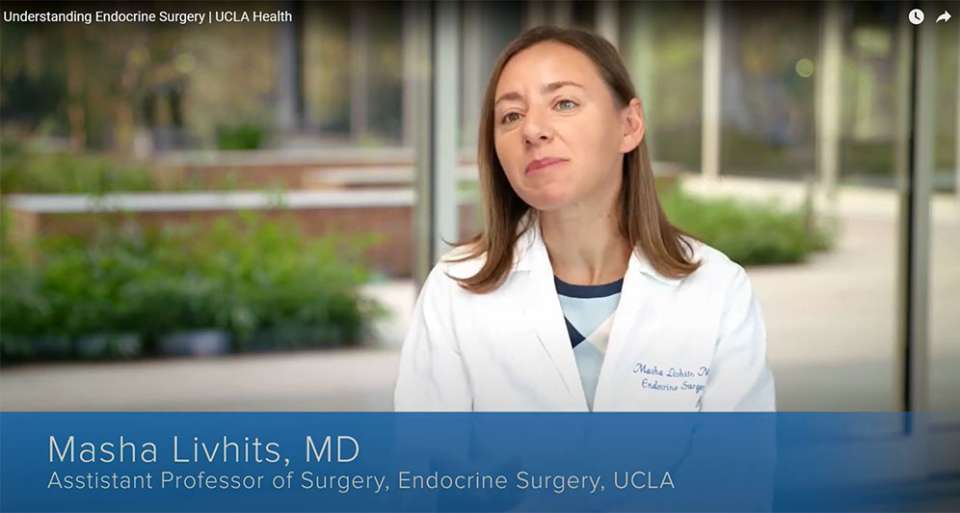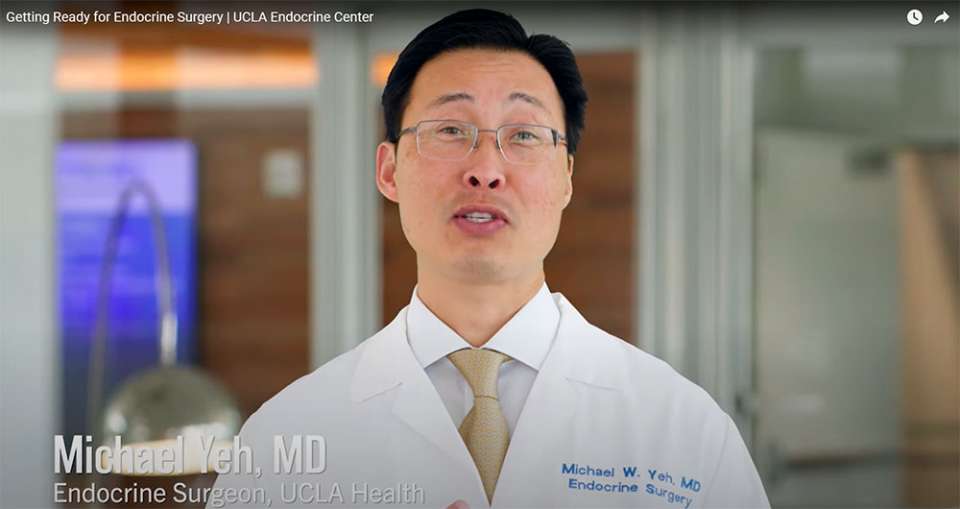About Endocrine Surgery
Find your care
We deliver effective, minimally invasive treatments in a caring environment. Call to connect with an expert in endocrine surgery.
What Is Endocrine Surgery?
Endocrine surgery is a subspecialty of general surgery that focuses predominantly on diseases of the thyroid, parathyroid, and adrenal glands.
Though there has historically been a divide between medical and surgical approaches to disease management, the relatively new specialty of endocrine surgery merges technical expertise with a working knowledge of the physiologic changes associated with hormone excess and deficiency. In other words, it is inherently multidisciplinary in nature.
Understanding Endocrine Surgery
The Center for Endocrine Surgery at UCLA is globally renowned for its Center for Endocrine Surgery, performing approximately 1,000 endocrine operations annually. Among the prevalent conditions treated are thyroid nodules, a common issue affecting nearly half of the population. Understanding endocrine surgery.

Endocrine Surgery Remains an Uncommon Specialty
There are approximately 200 active practitioners in the United States and an additional 100 abroad. Most of these individuals are faculty members at major universities and belong to one or both of the following professional societies:
It follows that, due to the relative scarcity of endocrine surgery expertise in many populated areas, the bulk of endocrine operations are performed by individuals without a specific interest in the field. Indeed, surgeons whose practice is made up of less than 25% endocrine procedures perform approximately 80% of all endocrine operations in the United States(1). This is despite the fact that superior outcomes are achieved when endocrine operations are performed by specialists(2, 3).
Though many active, experienced endocrine surgeons are general surgeons who developed a specific interest in endocrine diseases and modeled their practices and research endeavors accordingly, the most recent generation of endocrine surgeons is comprised predominantly of individuals who have undergone formal subspecialty fellowship training in endocrine surgery.
For historical reasons, many established training programs exist in Europe and developed nations of the British Commonwealth(4). As of 2007, the American Association of Endocrine Surgeons has developed a formalized curriculum and instituted a subspecialty fellowship match process(5).

- Saunders BD, Wainess RM, Dimick JB, Doherty GM, Upchurch GR, Gauger PG. Who performs endocrine operations in the United States? Surgery. 2003;134(6):924-31; discussion 931.
- Sosa JA, Bowman HM, Tielsch JM, Powe NR, Gordon TA, Udelsman R. The importance of surgeon experience for clinical and economic outcomes from thyroidectomy. Ann Surg. 1998;228(3):320-30.
- Stavrakis AI, Ituarte P, Ko CY, Yeh MW. Surgeon volume as a predictor of outcomes in inpatient and outpatient endocrine surgery. Surgery. accepted.
- Delbridge L. Division of Surgery, Royal North Shore Hospital, Sydney, Australia. Arch Surg. 2003;138(2):126.
- Pasieka JL. Kindred spirits of the endocrines: the training of the future endocrine surgeons. J Surg Oncol. 2005;89(3):202-5.